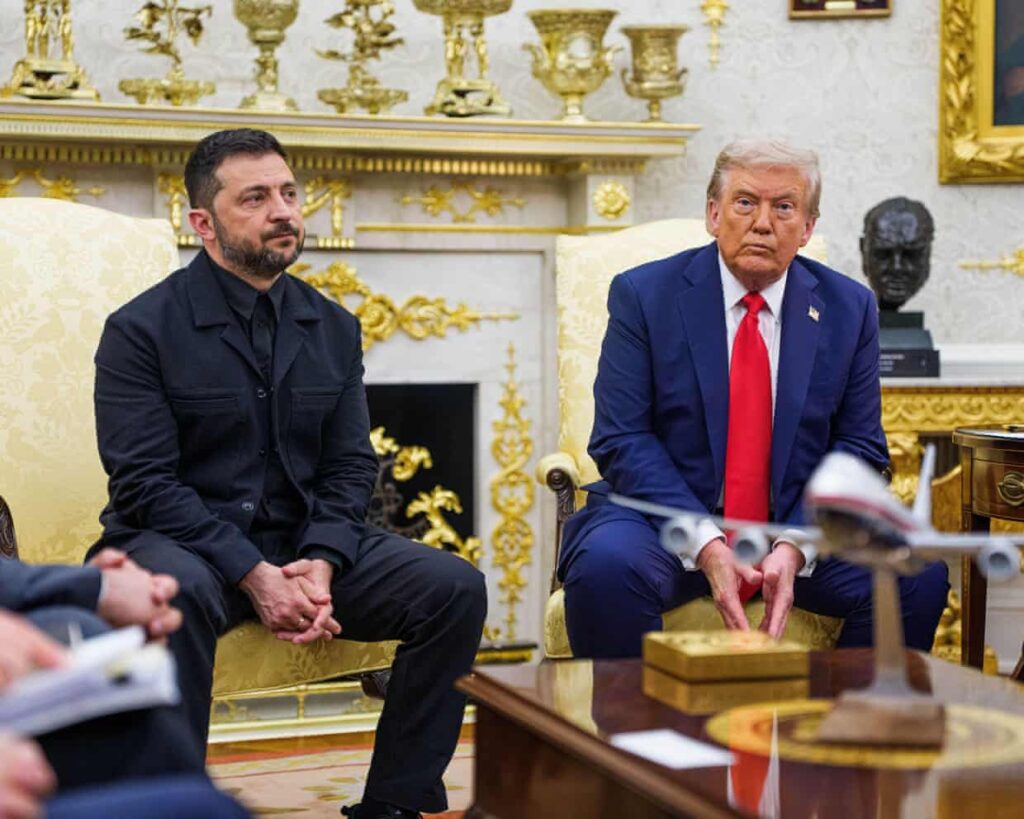Washington, D.C. – Ukrainian President Volodymyr Zelenskyy is expected to request long-range Tomahawk missiles from U.S. President Donald Trump this Friday. However, Trump’s surprise announcement that he will meet Russian President Vladimir Putin in Budapest has cast uncertainty over Ukraine’s chances of securing the weapons.
Trump revealed the summit plans after a phone conversation with Putin on Thursday, describing the discussion as “productive” in addressing Russia’s ongoing war in Ukraine. Hungary, the host nation for the talks, has stated it will not detain Putin despite the International Criminal Court’s arrest warrant. Hungarian Prime Minister Viktor Orbán praised his country’s role in facilitating the meeting during remarks on state radio Friday.
Meanwhile, European and U.S. officials continue to explore financial support for Ukraine. European Economic Commissioner Valdis Dombrovskis said the U.S. backs a new International Monetary Fund lending program for Kyiv, alongside an EU initiative to provide a loan using Russian central bank assets frozen in the West. Dombrovskis met with U.S. Treasury Secretary Scott Bessent on Thursday to discuss the measures.
In a separate development, a Kremlin envoy suggested an ambitious infrastructure project to symbolize U.S.-Russia cooperation: a “Putin-Trump” rail tunnel under the Bering Strait. Kirill Dmitriev, head of Russia’s RDIF sovereign wealth fund, proposed the $8 billion venture to facilitate trade and resource exploration. The 70-mile (112 km) tunnel could be completed within eight years with funding from Moscow and international partners.
On the battlefield, Russian authorities reported progress in Ukraine’s east. The Russian military claimed to have captured three villages—Pishchane and Tykhe in Kharkiv, and Pryvillia in Dnipropetrovsk—that Kyiv had retaken during a surprise counteroffensive three years ago. Meanwhile, a Russian military court sentenced 15 members of Ukraine’s Aidar Battalion to 15–21 years in a maximum-security penal colony for participation in what Russia labeled a “terrorist organization.”
Diplomatic voices continue to stress Ukraine’s role in peace negotiations. German Foreign Minister Johann Wadephul said the planned Budapest talks aim to encourage Putin to engage seriously in negotiations, but Ukraine must be included in any settlement discussions.
Elsewhere in Europe, legal and political developments made headlines:
Two Ukrainians pleaded not guilty to plotting arson targeting properties linked to U.K. Prime Minister Keir Starmer.
Portugal’s parliament approved a bill banning face veils in most public spaces, targeting garments such as burqas and niqabs, with fines ranging from 200 to 4,000 euros.
France launched a formal investigation into four men suspected of plotting attacks against a Russian opposition figure living in exile.
French authorities also imposed restrictions on cattle exports and events like bullfighting to curb the spread of the highly contagious lumpy skin disease.
German Finance Minister Lars Klingbeil and Bundesbank President Joachim Nagel endorsed Chancellor Friedrich Merz’s call for a European stock exchange to strengthen European business and investment.
Poland blocked the extradition of a Ukrainian suspect linked to the 2022 Nord Stream pipeline attacks, citing national interest concerns.
As Ukraine navigates both military and diplomatic challenges, the coming days could prove pivotal in shaping the conflict’s trajectory and international response.

